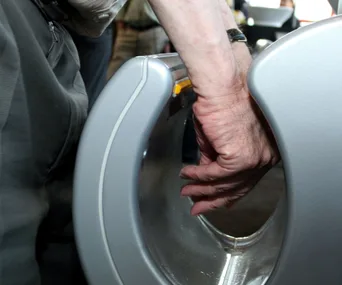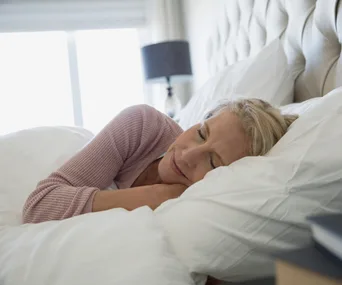Chloe Christos first got her period at 14. However, she didn’t stop bleeding for five years after.
Christos, now 27 and living in Perth, told ABC News about her lifelong struggle with uncontrollable periods that lasted for years instead of days, and often landed her in the emergency room for iron infusions to control the severe anaemia she’d developed.
“I knew it wasn’t quite right, but I was also embarrassed to talk about it,” Christos told ABC. “I felt very different and pretty alone.”
It wasn’t until she was 19 that a doctor tested her blood and found she had von Willebrand disease, lifelong bleeding disorder that prevents blood from clotting properly.
Still, even with a diagnosis, Christos was far from a cure.
One doctor presented the option of performing a hysterectomy to at least stop her uncontrollable periods, but Christos was reluctant to undergo such a procedure at a young age.
“I don’t know if I ever want kids but I never wanted to get rid of what made me a woman,” she said. “And I was terrified of being in my mid-20s and going through menopause.”
As Christos told ABC, doctors struggled with figuring out how to treat a woman with a bleeding disease.
“I came across a lot of people, even in the medical profession, who didn’t realise what it meant for women to suffer from a bleeding disorder,” she said.
Having a period that can start and then not stop for years at a time makes treatment more complicated and can make things much more difficult for women than men.
After trying several treatment options, Christos finally found one that works for her.
And now, at 27, she told ABC she’s just had her first normal, four- or five-day period of her life.
“That happened for the first time less than a month ago,” she said. “I truly feel so lucky that I have found something that works for me.”
Now Christos is working to raise awareness that women can and do suffer from bleeding disorders like von Willebrand disease (which affects men and women equally), despite the fact that physicians long thought only men could suffer from them.
Alain Baumann, chief executive of the World Federation of Haemophilia, told ABC that “many women will live with these symptoms for years without being identified and diagnosed.”
This is where Christos’s work to raise awareness comes in.
Right now, she’s raising money on GoFundMe so she can go to the World Federation of Haemophilia, World Congress in Orlando in July 2016.
Her goal there is to “advocate for women with bleeding disorders globally for equal rights to quality of care and access to treatment.”
She writes on her GoFundMe page that the motivation is her disease, of course, and wanting to make sure other women with bleeding disorders like hers are taken seriously when they go to emergency rooms for treatment after having their periods for far too long.
“A lot of statistics and data is kept on diagnosis and treatment for men,” she told ABC. “There’s almost nothing on women that doctors can refer to, and I hope we can change that.”
This article originally appeared on Cosmopolitan




